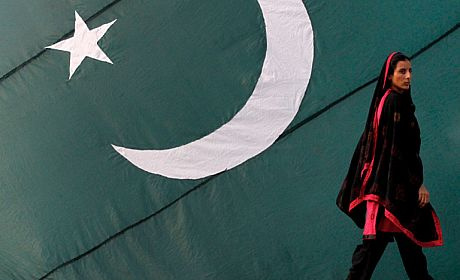What Pakistan Is Thinking

Before studying the impact of Pakistan and its foreign policy on its neighbors, we must look at the domestic developments of this country. During the past year, Pakistan was faced with a government which came to power with the people’s votes at the federal and state levels. This time, the transfer of power was done through the ballot boxes and the present party remained in power with a considerable majority and won the election and was able to form a government and hold power at the federal and state levels and also in the parliament. In other words, the ruling party succeeded in controlling the government and the parliament at all levels.
At the same time, another significant event took place in Pakistan. The elements of power in the army and the judiciary retired and new people replaced them who were somehow appointed by the new government. This means that new people were appointed for the top positions of the army, which has always acted as a powerful institution, and also the judiciary and now they have better collaboration with the new government. Therefore, the transfer of power in Pakistan through the ballot boxes was an important event.
Another event which was unprecedented was the growing insecurity in every region in Pakistan. Radical terrorist acts have spread in all cities including Karachi and have imposed huge costs on Pakistan. The outcome of this situation was the pressure which was exerted on the substructures of this country more than ever before. For example, in the area of energy, some of Pakistan’s biggest cities were sometimes faced with more than twelve hours of power outages. In general, economic issues were questioned.
When the domestic developments in Pakistan combine to create a new situation, they will then impact the country’s foreign policy. But in the area of relations with its big neighbors, including India, no major development has occurred. On the issue of its relations with Afghanistan and considering the upcoming developments in that country such as the presidential election and the exit of foreign military forces, it could be said that no new development has happened in relations between Kabul and Islamabad. On the other hand, Pakistan’s other important neighbor is the Islamic Republic of Iran and it was expected that new movements and visits would take place due to the election and the coming to power of the new administration but nothing happened. The recent incident, i.e. the taking of 5 Iranian border guards, has cast a shadow over relations between Tehran and Islamabad. In the area of energy, although the Iranian party fulfilled major parts of its obligations, it seems that due to the same domestic developments it did not succeed.
The only considerable development which has happened in Pakistan has been the numerous visits between this country and the Arab states. One must study the impacts of such visits on Pakistan’s economy and its internal policies.
Right now we must wait and see what the ruling party will do with these developments. Will the ruling party define its relations in its behaviors with the extra-regional and some Arab countries or does it intend to have an acceptable relation in a balanced behavior with its neighboring countries? It seems that no certain incident has happened so far in this regard. Considering Tehran’s new policies regarding its neighbors, Pakistan has not taken any concrete measures in this area. Thus, one must wait and see whether Islamabad will make any changes in its foreign policy with regard to its neighbors, particularly with Iran which is the biggest country with clean energy sources in the region and the world and Pakistan’s grave need for this energy. But despite Tehran’s readiness, no fundamental measure has been taken by Pakistan. The incidents which happened in the borders between Iran and Pakistan and the presence of radical forces have created conditions especially in the public opinion which has left negative impacts. That is why we must wait and hope that in the New Year Pakistan’s relations with its neighbors, particularly Iran, would improve.

